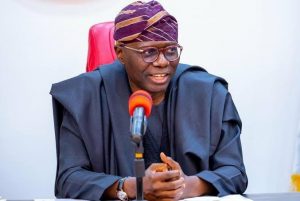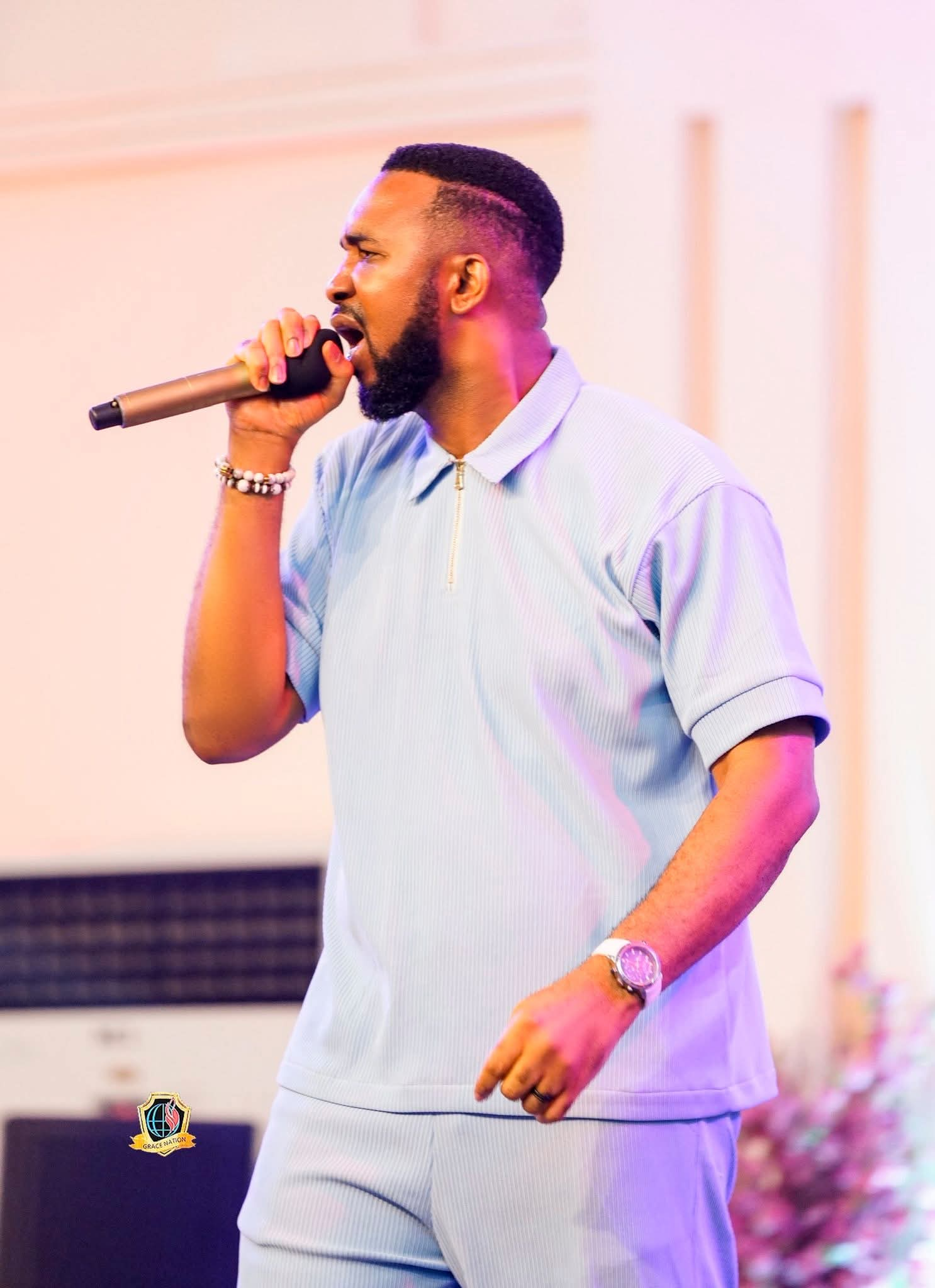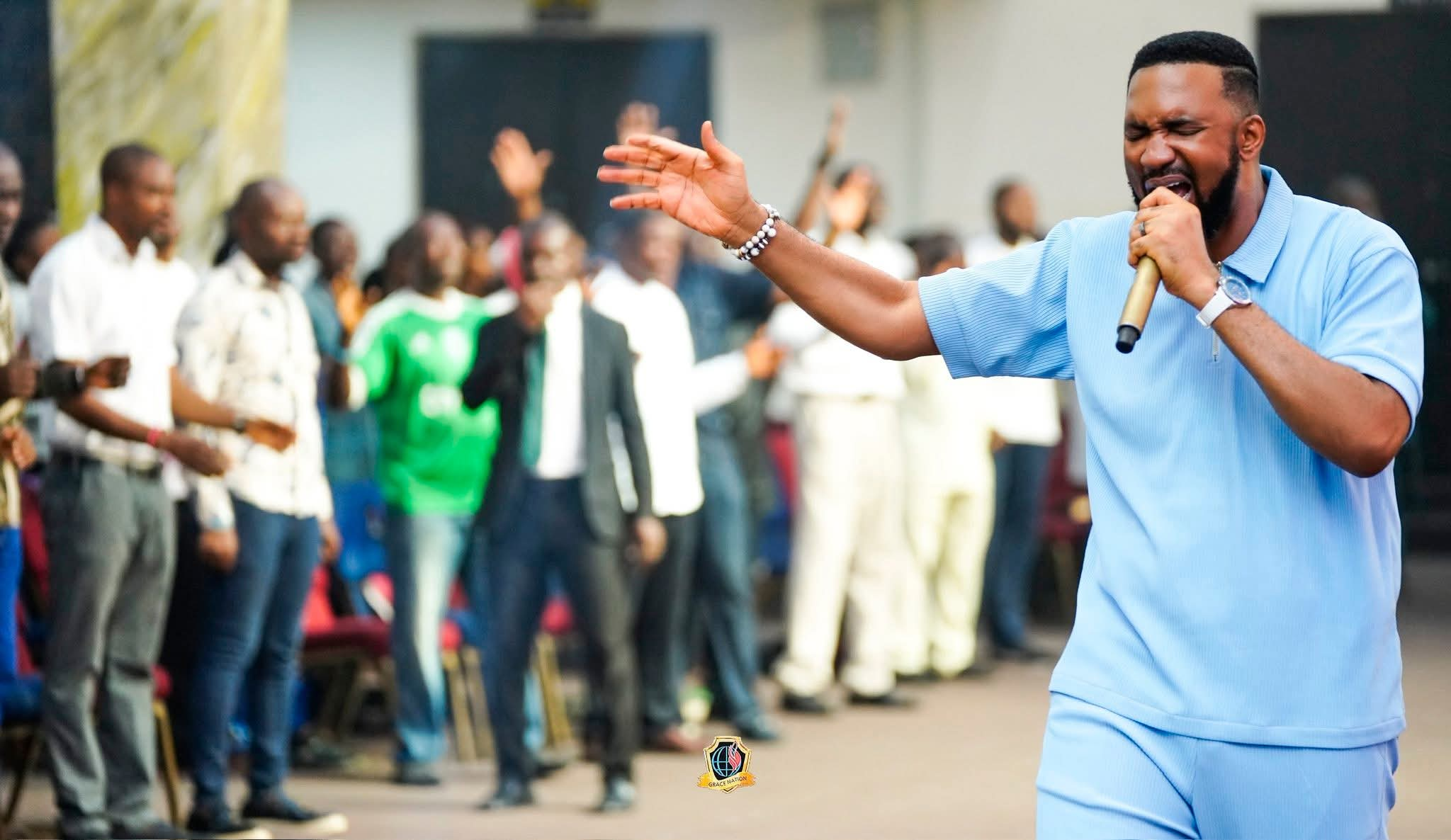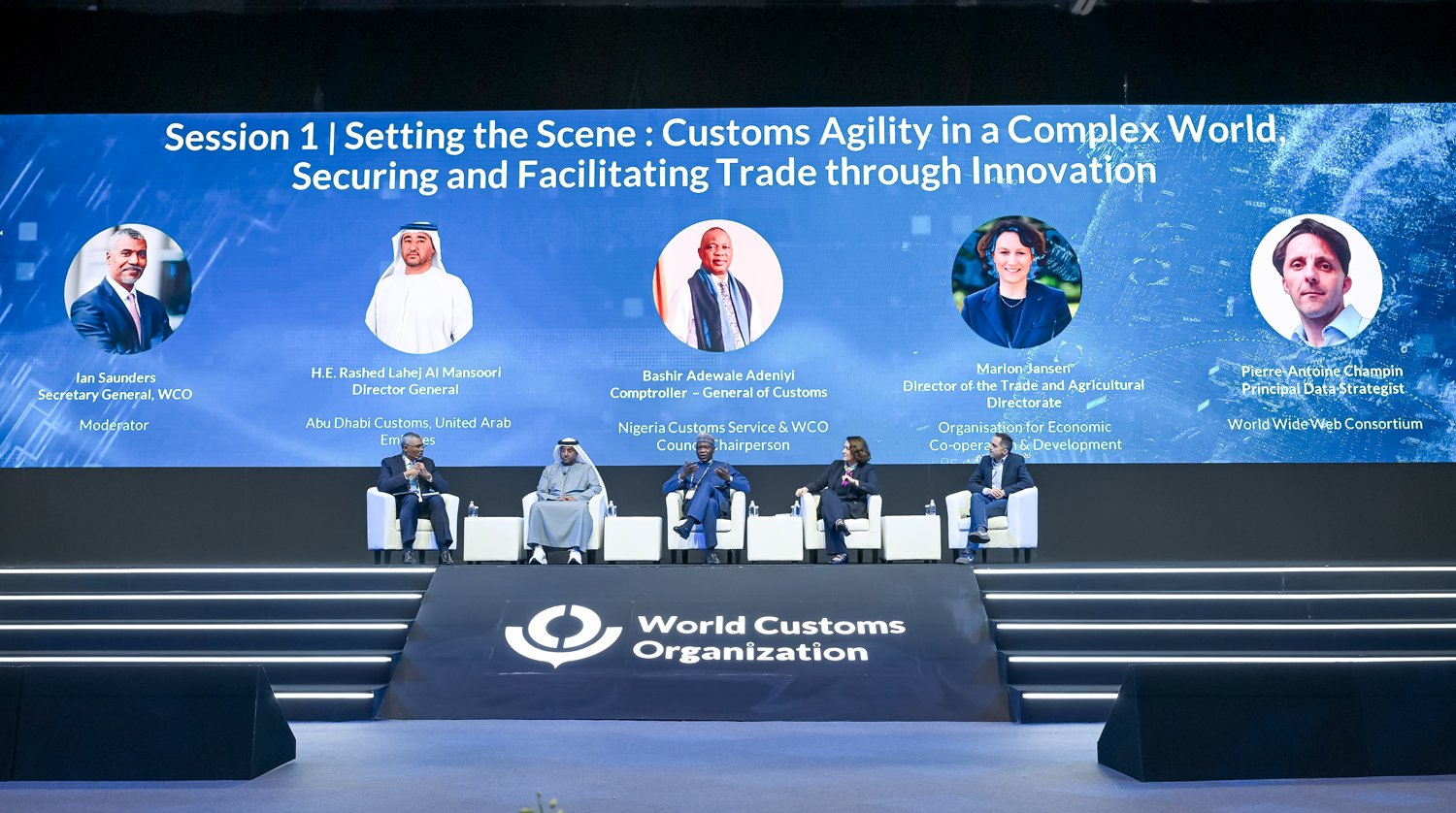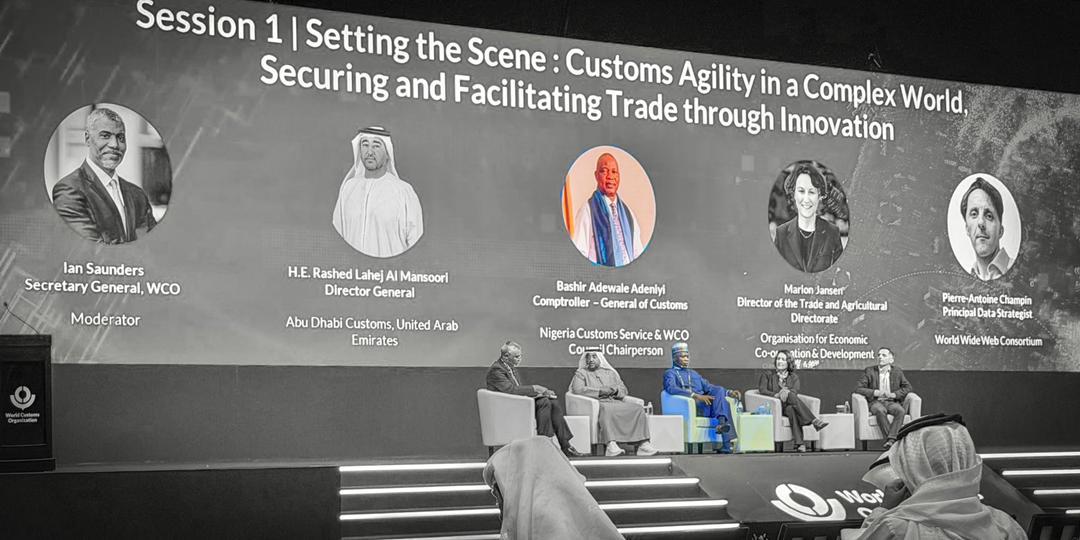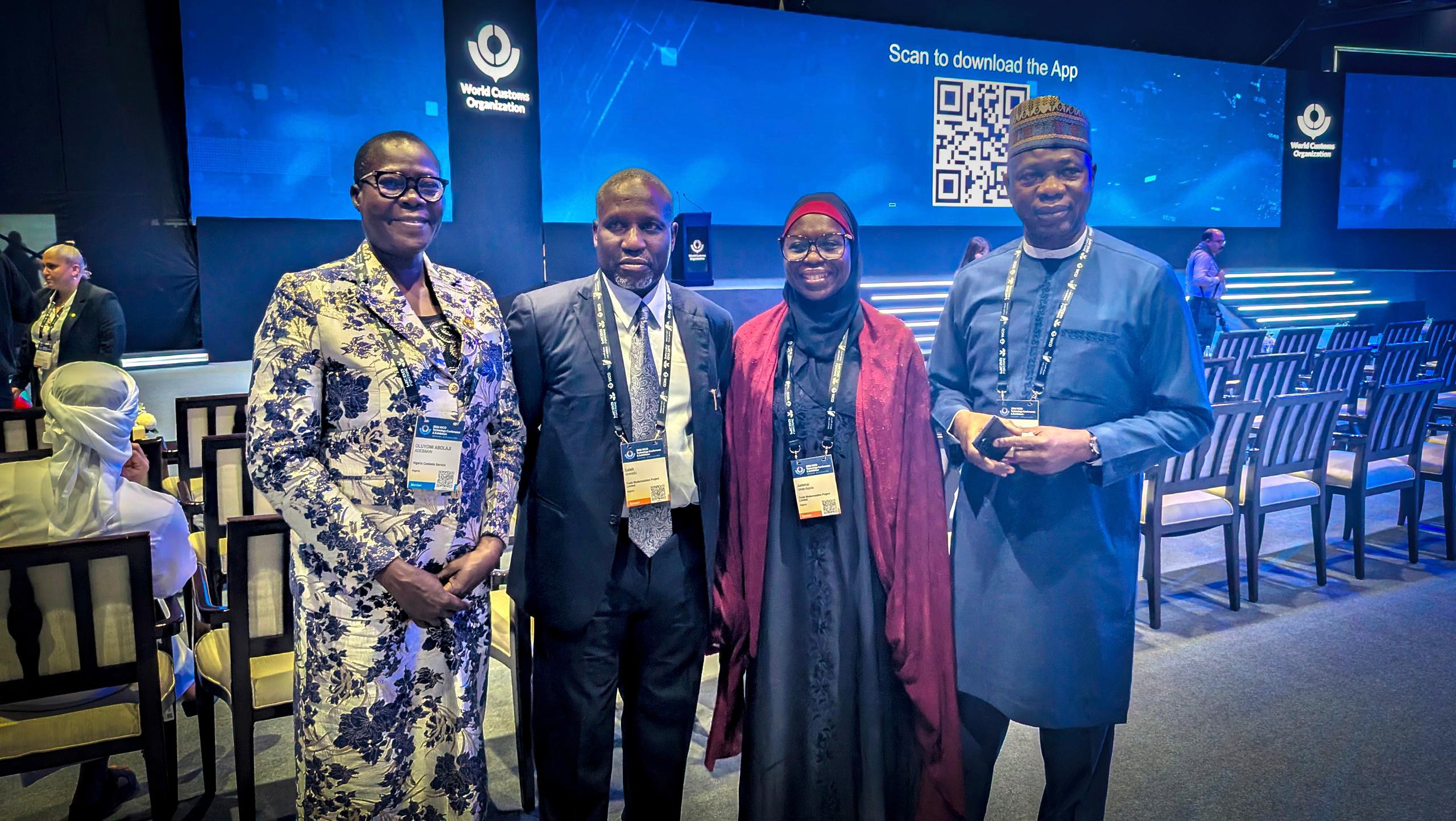Uncategorized
9 Political Parties Step Down For Sanwo-Olu
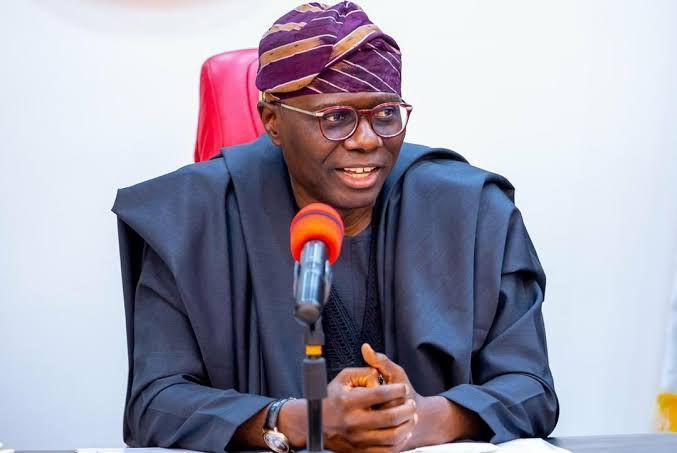
9 Political Parties Step Down For Sanwo-Olu
SANWO-OLU– Barely five days to the gubernatorial election, nine governorship candidates and the leadership of their political parties in Lagos State have stepped and declared support for Governor Babajide Sanwo-Olu.
The candidates under the auspices of Alliance of Registered Political Parties, formally endorsed and declared their support for the re-election bid of Sanwo-Olu and his Deputy, Dr. Obafemi Hamzat in the March 18 governorship election in the state in view of his achievements in the last four years.
The political parties included the Young Progressive Party, (YPP), APP, Action Democratic Party (ADP), Allied Peoples Movement (APM), Zenith Labour Party (ZLP), Social Democratic Party (SDP), New Nigeria Peoples Party (NNPP), NRM and Peoples Redemption Party (PRP), at an event held in Lagos.
According to them, Lagos State was best in the hands of a competent and experienced leader like Governor Babajide Sanwo-Olu.
Speaking on behalf of the political parties, governorship candidate of YPP in Lagos state, Adebayo Ajayi, said “We are here to make known our minds on the forthcoming election in Lagos state.
“I wish to welcome you to all this gathering convened by the Alliance of Registered Political Parties (ARPP) comprising nine registered political parties namely APP, ADP, APM, NRM, YPP, NNPP, ZLP, SDP and PRP, to formally declare our support for Governor Babajide Sanwo-Olu for another term of office.
“ARPP is a group of nine committed and patriotic registered political parties in Lagos State that is interested in the good works of the state government under Governor Babajide Sanwo-Olu and desire continuity and realisation of the dream Lagos of this administration.
“We reached this decision sequence to our thorough analysis of all the good works and rapid development in Lagos.
“We cannot sacrifice the various landmark achievements of the present administration scattered in the state on the altar of the bitter politicking.
“The governor’s consistency as a progressive democrat is worthy of commendation and continuity. He has delivered on his social contract to the good people of Lagos state.
“It makes a whole lot of sense for Lagos State to be in tune with Asiwaju Bola Tinubu’s presidency at a time like this to achieve our age long desires and lofty aspirations.
“From this end, the governorship candidates of the Alliance namely governorship candidate of YPP, Ajayi Adebayo, Chief Adeyemi Abiola (APP), Adenipekun Adekunle (ZLP), Kupoluyi Funmi, (APM), Ishola Bamidele, (ADP), are stepping down their governorship ambitions to declare their support for Governor Babajide Sanwo-Olu.
“This support is borne out of love and desire for a greater Lagos which BOS has set the pace and serve to drive it to fruition.
“We however wish to seize this opportunity to inform and urge all our supporters across Lagos State to vote massively on Saturday, March 18, for Babajide Sanwo-Olu as governor and his deputy, Obafemi Hamzat for second term.”
Also speaking at the official endorsement, ZLP Lagos state chairman, Adekunle Adenipekun said the endorsement became necessary to continuity and greater Lagos.
He said, “History is taking place today. Today is the day when political parties in Lagos come together to make history as political parties officially declared their support for the re-election of Governor Babajide Sanwo-Olu and his deputy, Dr Obafemi Hamzat.”
Meanwhile, the Chief Press Secretary to Governor Sanwo-Olu, Gboyega Akosile, has said the decision of Sanwo-Olu to seek second term in office, was to consolidate on his achievements and performance in Lagos.
He described Sanwo-Olu as the most experienced among all the governorship candidates in Lagos State.
In an article he penned, Akosile wrote: “Sanwo-Olu, an exemplary public sector reformer and astute politician, known for his love and passion for the public service, has shown leadership in Lagos by giving the electorate a great deal in steering the ship of the nation’s commercial city in the right direction.
“As the 15th Lagos Governor, and having worked closely with three previous governors – Asiwaju Bola Tinubu, Babatunde Raji Fashola, and Akinwunmi Ambode in different capacities, Sanwo-Olu understands the State and the various challenges facing the mega city.
“His knowledge of challenges confronting residents made his administration to adopt a six pillars policy programme tagged T.H.E.M.E.S in solving the identified problems through good governance. The six pillars are; Traffic Management and Transportation; Health and Environment; Education and Technology; Making Lagos a 21st Century state; Entertainment and Tourism; Security and Governance. Each of these six pillars is carefully thought-out as the Government’s priorities in delivering solutions across sectors.”
According to him, Sanwo-Olu, in his speech at the swearing-in on May 29, 2019, spoke passionately about his plans for the State, especially his dream of building a Greater Lagos.
“This passion seemed to have motivated his quest for good governance. The governor, without any iota of doubt, has delivered significantly on his campaign promises during his first term in office. His achievements are visible in different sectors and have been commended by people within and outside the state.
“A little above seven months when the Sanwo-Olu administration had barely settled down, COVID-19 pandemic ravaged the entire world and Lagos became an epicentre of the airborne disease.
“The governor showed leadership in rising up to the occasion and responding to the pandemic. As Incident Commander, he protected the citizens of the state by ensuring that the ravaging infection was well managed.
“Sanwo-Olu, with the assistance of his Commissioner for Health, Prof. Akin Abayomi, and other stakeholders controlled the spread and ensured that those who contracted the virus were well attended to. He was the first governor to come up with a clearly defined containment strategy and response, which was later adopted by the presidency for the national response plan.
“This intervention by the Sanwo-Olu administration made Nigeria the fourth best country in the world which impressively curbed the spread of the COVID-19 virus according to the World Health Organisation (WHO).”
He pointed out that Sanwo-Olu also displayed great leadership during the #EndSARS demonstration, a youth-motivated civil action against police brutality, which was later hijacked by hoodlums.
“The campaign, which started peacefully, turned violent after it was hijacked, leading to violence and destruction of many private and public properties in Lagos State. Rather than allowing Lagos to be brought to its knees by the ugly incident, Sanwo-Olu rose up to the challenge by championing “Rebuild Lagos” plan.
“The administration’s traffic management and transportation blueprint has significantly brought the dream of Lagos to have an efficient and reliable intermodal system of transportation to a reality.
“Sanwo-Olu’ government has invested hugely in waterways and a light rail system as alternatives to road transportation.
“The Governor’s administration started the 37-km Red Line rail project from the scratch and the project is at completion stage. At full operation, the Red Line will move about a million passengers daily.
“The administration also injected huge resources into the 13-km Blue Line rail, commissioned in January by President Muhammadu Buhari, to ensure mass mobility from Mile 2 axis into the Island.
“To ease traffic gridlock in the metropolis, Sanwo-Olu’s administration built and completed Agege-Pen Cinema dual carriage flyover with adjoining roads in Agege, and also commissioned the Lagos-Ogun network of roads with bridge in Agbado-Oke Odo LCDA.
“He also carried out Junction Improvements and Reconfiguration at the 18 traffic spots, including first and second Lekki Roundabouts, Allen Avenue, Ajah and Igando. All these are done to reduce traffic gridlock in the state.”
He pointed out that in the last three and half years, Sanwo-Olu had constructed and rehabilitated over 1,000 roads while others were at various stages of completion.
“The plan for construction of the 4th Mainland Bridge is also on course. The incumbent administration also started the Opebi-Ojota Link Bridge, which is expected to be completed this year. “The First phase of the six-lane rigid-pavement 18.75km Lekki-Epe Expressway, stretching from Eleko Junction all the way to Epe T-junction, is completed and delivered to the good people of Lagos residing in the Lekki-Epe axis.
“The Sanwo-Olu administration has also provided thousands of LAGRIDE cars, First and Last Mile buses, and Large Capacity buses and boats for waterways to ease transportation in Lagos.
“Sanwo-Olu believes no resources should be spared in providing quality health care to the residents, which is why the State Government delivered secondary health facilities, such as Mother and Child Centers (MCCs) in Eti-Osa, Igando, Epe and Badagry. Lagos Government is building New Massey Children Hospital, which will be the biggest children hospital in West Africa. There is also an ongoing construction of General Hospital in Ojo and development of a mental health facility in Ketu Ejinrin,” he said.
Continuing, he stated: “Lagos State Polytechnic (LASPOTECH) and Lagos State College of Education (LACOED) have been upgraded to universities. Lagos now has three State-owned universities, courtesy of Sanwo-Olu’s education reforms.
“It should be noted that there has been no disruption of academic activities across Lagos’ tertiary institutions since Sanwo-Olu took over; all issues that relate to students, staff and lecturers’ welfare are promptly attended to.
“One of the cardinal programmes of the Governor is Making Lagos a 21st-century economy. In this regard, Sanwo-Olu has recorded a milestone in provision of requisite infrastructure. The recent handover of Lekki Deep Seaport project is a pointer to this. Lagos has also secured an approval for the development of Badagry Port and an international airport in Lekki. All of these will boost Lagos’ economy when completed.
“Governor Sanwo-Olu has also made significant progress in Housing sector, as the administration commissioned over 7,000 flats in about 17 housing units in different parts of the state in the last three and half years, while more housing schemes are expected to be delivered in the coming months.
“The Sanwo-Olu administration has done so much in the area of agriculture and food security, with initiatives such as the Agro Processing, Productivity Enhancement and Livelihood Improvement Support (APPEALS) Project, designed to build the capacity of players in the rice, aquaculture and poultry value chains.
“The government has also strengthened the capacity of farmers through the Lagos Agripreneurship Programme (LAP), the Sea Food Festival and the Eko City Farmers Food Market.”
news
Ramadan 2026: Let’s Be United, Shina Akanni Urges Muslims.
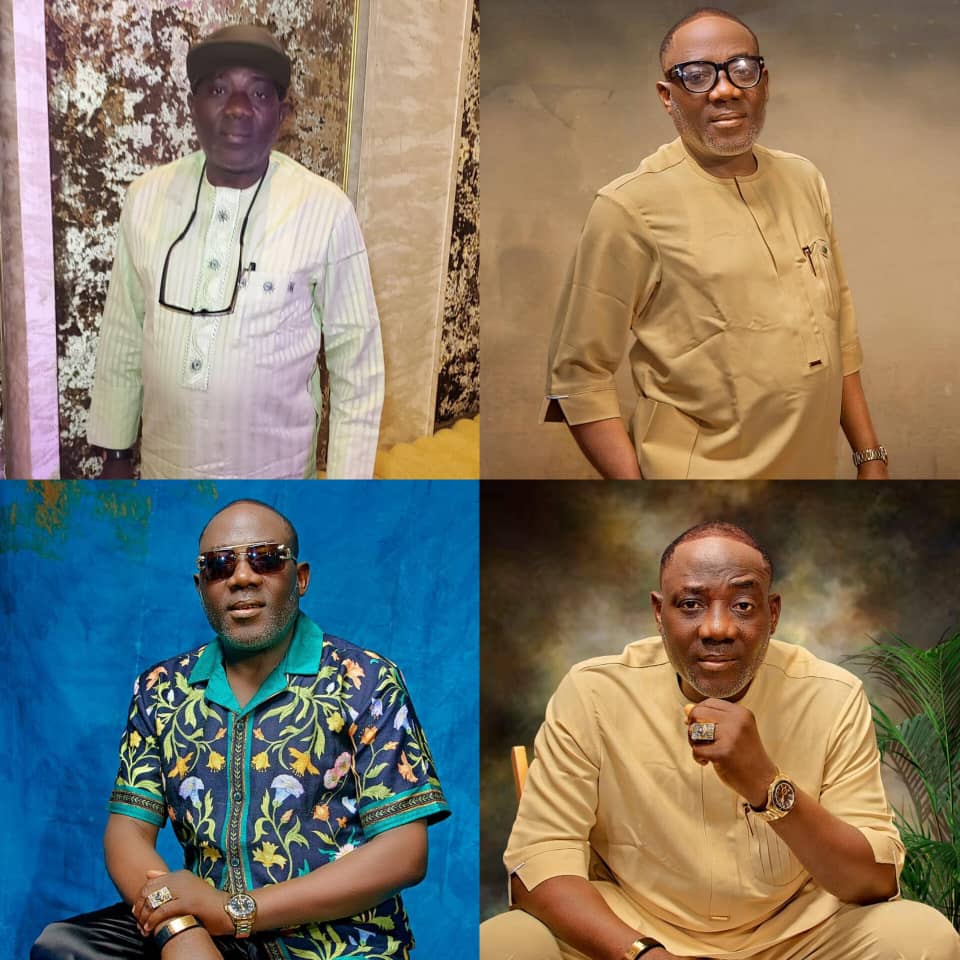
Ramadan 2026: Let’s Be United, Shina Akanni Urges Muslims.
As Muslims all over the world begins the 30 days compulsory fasting and prayer today,top Fuji Musician Aare Sir Shina Akanni Aroworeyin Scorpido has congratulates them for witnessing another month of Ramadan.
Akanni advised them to follow the teachings of the the Holy Prophet Muhammad (SAW) which is peaceful co existence among themselves and their neighbor ‘because Islam is Religion of peace”.
He said the month of Ramadan is an holy month therefore Muslims should try as much as they can to maintain peaceful coexistence among themselves and others and that they should see themselves as ambassador of peace.
While praying for Nigeria,Aare Sir Shina Akanni Aroworeyin Scorpido said he believes that there will be an economic turnaround soon because what’s is happening now are signs of thought times that never last “if we can pecevere things will get better”.
The Scorpido crooner who recently released a hip hop single titled “Magbelo” said he is currently working on a complete album which will be released before the end of the year.
Aare Sir Shina Akanni Aroworeyin Scorpido whose last album ‘ABCD” is still in hot demand said that his next album will be a pot pouri of all kinds of music because his brand of Fuji music is a blend Fuji , Hip-hop,Apala ,Highlife and others.
Uncategorized
The Enemies Within: Jonahs Are Not Manageable — Dr. Chris Okafor
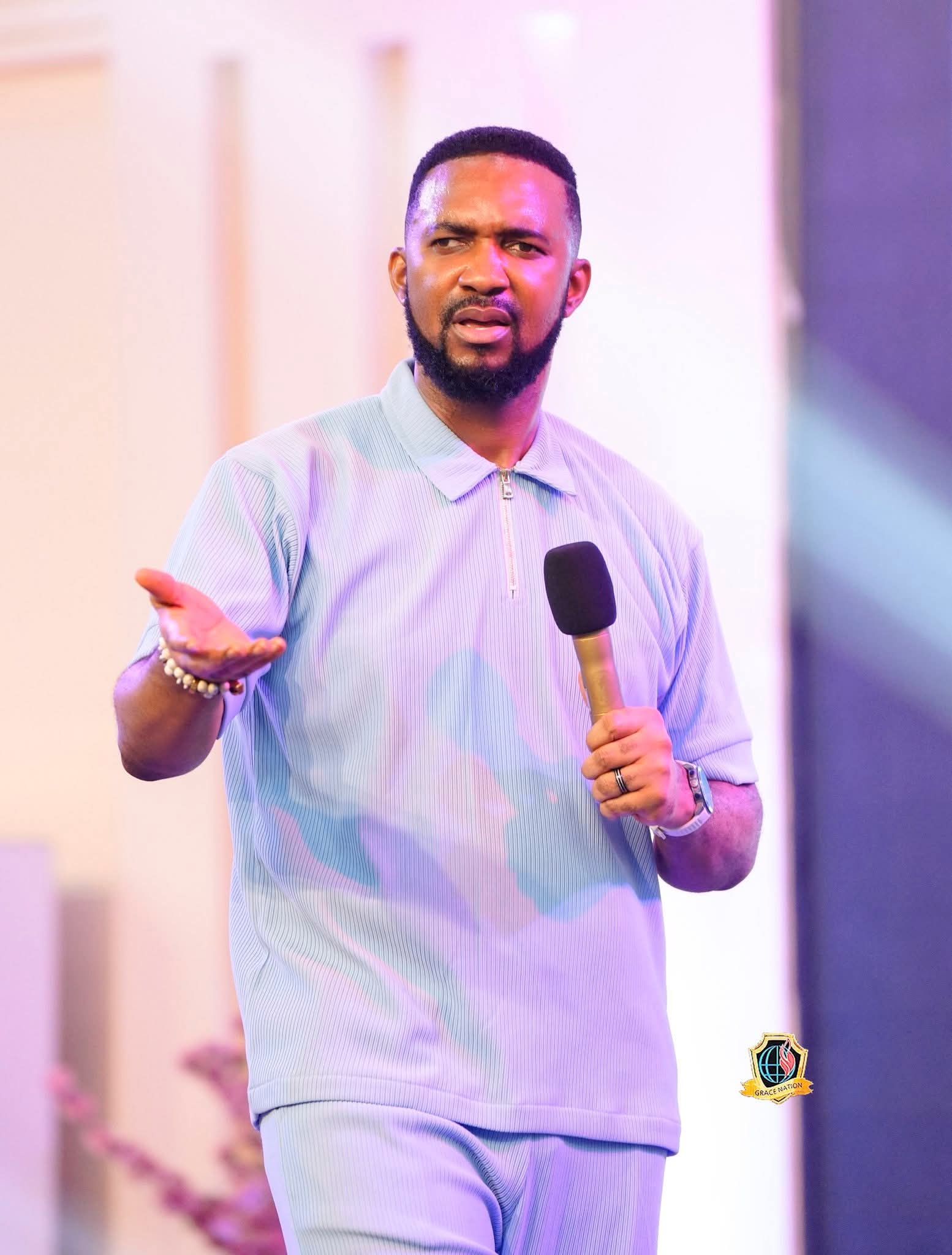
The Enemies Within:
Jonahs Are Not Manageable — Dr. Chris Okafor
…….“To remove Jonah, you must bring Jesus into the matter.”
When a “Jonah” enters a person’s life, confusion, gossip, blackmail, betrayal, and the pull-him-down syndrome often follow. But the moment Jesus Christ is invited into the situation, the storm subsides and stability is restored.
This was the central message delivered by the Generational Prophet of God and Senior Pastor of Grace Nation Global, Dr. Chris Okafor, during the midweek non-denominational Prophetic Healing, Deliverance and Solutions Service (PHDS) held at the international headquarters of Grace Nation Worldwide in Ojodu Berger, Lagos, Nigeria.
The Clergyman also declared that Nothing Happens Without Spiritual Influence
In his sermon titled “The Enemies Within,” Dr. Okafor declared that nothing happens without spiritual involvement. According to him, every visible battle has an invisible root.
Referencing the biblical story of Jonah, the Man of God explained that Jonah’s presence on the ship gave access to a contrary spirit that tormented everyone onboard.
Despite the losses suffered by innocent traders and sailors, the storm persisted because of one man’s disobedience.
However, he noted that when Jesus speaks into a situation, every storm must obey. Just as Christ rebuked the storm and it ceased, so too will the storms in believers’ lives subside when He is invited into their “boat.”
*The Impact of a Jonah*
Dr. Okafor further emphasized that “Jonahs” are difficult to manage. When such individuals are present in one’s circle, progress becomes delayed.
What should ordinarily manifest quickly may be prolonged or frustrated because someone close—someone who understands you deeply—may be operating as a spiritual adversary.
He explained that negative narratives, unnecessary battles, and unexplained setbacks often begin when a “Jonah” gains access to a person’s inner circle.
*The Solution*
“To remove Jonah from the boat of your life,” the Generational Prophet declared, “you must invite Jesus Christ into the matter.”
According to him, when Jesus takes control of the boat, the plans of the enemy are overturned.
What was designed for downfall becomes a testimony. No storm or battle can succeed where Christ reigns, and the enemy is ultimately put to shame.
The midweek service witnessed a strong prophetic atmosphere, with the power of God evident through deliverance, restoration, and divine revelations.
The Generational Prophet ministered deeply in the prophetic, calling out names, villages, and addressing alleged spiritual strongholds, as many lives were reportedly restored—all to the glory of God.
By Sunday Adeyemi
Uncategorized
FROM BORDER TO MARKETS: HOW NIGERIA’S REFORMS ARE REWRITING AND MODERNISING TRADE FACILITATION By O’tega Ogra
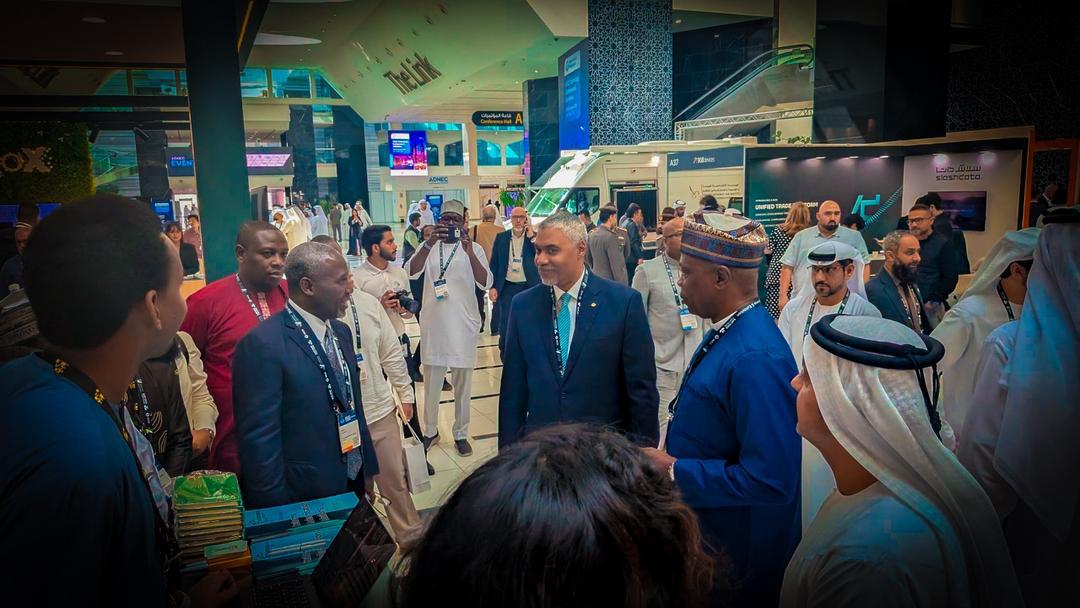
FROM BORDER TO MARKETS: HOW NIGERIA’S REFORMS ARE REWRITING AND MODERNISING TRADE FACILITATION
By O’tega Ogra
On the surface, the 2026 World Customs Organization (WCO) Technology Conference in Abu Dhabi, held in the last week of January, followed a familiar script: flags, formal sessions, carefully worded speeches. But beneath the choreography, something more consequential was unfolding. As customs chiefs and trade officials compared notes on the future of borders, Nigeria arrived not with theory, but with a working proposition.
The Nigeria Customs Service (NCS) Modernisation Project, being implemented through Trade Modernisation Project (TMP) Limited, unveiled to a global audience of customs administrators and policy leaders a window into how Africa’s largest economy is confronting one of the most complex challenges in public administration: reforming the machinery of trade while it is still running.
For decades, customs reform was treated largely as a technical exercise—frequent patches here, shoddy fixes there; new software in one corner, revised procedures in another. Nigeria’s presence in Abu Dhabi signalled something different. TMP Limited, working in partnership with the NCS, advanced the argument that trade is a cornerstone of economic development and must be supported by organic, sustainable partner ecosystems. Such ecosystems deliver speed and trust, revenue and credibility, and secure borders without stifling commerce.
That argument resonated in a room increasingly aware that global trade is no longer defined solely by tariffs and treaties, but by data, interoperability, and the quiet efficiency of systems that simply work.
The annual WCO Technology Conference has, in recent years, become a barometer for the direction of global trade governance. This year’s discussions reflected a shared anxiety: supply chains are more fragile, compliance risks are rising, and governments face mounting pressure to collect revenue without discouraging investment. Customs administrations now sit at the intersection of all three.
Nigeria’s response has been to attempt a full reset.
At the heart of this effort is the NCS Modernisation Project, implemented through a Public-Private Partnership (PPP) arrangement with TMP Limited as the concessionaire. The project seeks to replace fragmented technology deployments and manual processes within the Nigeria Customs Service with a single, integrated framework. This is anchored on B’Odogwu, a Unified Customs Management System (UCMS) that brings together cargo clearance, risk management, payments, and inter-agency collaboration. The ambition is sweeping—and so are the stakes.
Alhaji Saleh Ahmadu, OON, Chairman of TMP, framed the initiative as nothing less than an institutional reconstruction, designed to position the NCS at the forefront of global customs administration technology, aligned with international standards and assurance frameworks.
“Digital trade modernisation is not just about upgrading systems,” he told participants in Abu Dhabi. “It is about upgrading trust, predictability, and confidence in how trade flows through our borders.”
That choice of words matters. Nigeria’s economy has long struggled with the perception gap between its size and the ease of doing business. Investors cite delays. Traders complain of opacity. Government points to revenue leakages. In this context, customs reform becomes as much a credibility project as a technical one.
Saleh’s message was timely and direct: modern trade demands modern customs. Data-driven processes, automation, and risk-based controls are no longer luxuries; they are prerequisites for competitiveness in a world where capital moves faster than policy.
The institutional face of this digital transformation is the Comptroller-General of Customs, Bashir Adewale Adeniyi, who led Nigeria’s delegation to Abu Dhabi. His message reflected a subtle but important shift in how customs leadership now understands its role.
“Customs administrations today must evolve from gatekeepers to facilitators of legitimate trade,” Adeniyi said. “Nigeria’s customs modernisation project reflects our determination to place the Nigeria Customs Service at the centre of national economic transformation.”
It is a familiar refrain globally, but one that carries particular weight in Nigeria, where customs revenue remains a critical pillar of public finance. Automation, Adeniyi argued, is not about weakening control; it is about strengthening it through intelligence rather than discretion.
Risk management systems reduce unnecessary physical inspections. Integrated platforms limit human contact. Data analytics improve compliance targeting. When executed well, the result is faster clearance for compliant traders and tighter scrutiny for high-risk consignments.
In Abu Dhabi, peers from Asia, Europe, and Latin America listened closely to Nigeria’s presentation. Reforming customs in a small, open economy is one thing. Doing so in a market of over 200 million people, home to some of Africa’s busiest ports and its largest economy, is quite another.
Nigeria’s engagement emphasised that customs modernisation is embedded within a broader economic reform agenda under President Bola Ahmed Tinubu, GCFR. Simplifying trade procedures, strengthening revenue assurance, and aligning with international standards form part of a wider effort to reposition the economy for investment-led growth.
What makes the project particularly noteworthy is its insistence on end-to-end coherence. Rather than digitising isolated functions, the reform aims to connect agencies, harmonise data, and reduce duplication across government—an all-of-government approach that acknowledges an uncomfortable truth: trade friction is often created not at the border, but between institutions.
The WCO 2026 Technology Conference offered Nigeria more than a platform; it provided a stress test. Questions from peers were pointed. How will change be sustained across political cycles? How will capacity be built? How will entrenched institutional behaviours be unlearned?
The responses were pragmatic. Reform is being phased. Training programmes are ongoing. International benchmarks are being adopted not as slogans, but as operating standards. There were no claims of perfection—only a clear statement of intent.
“Our engagement here underscores Nigeria’s commitment to international cooperation,” Adeniyi noted. “We are learning, sharing, and contributing to global conversations on the future of customs administration.”
That contribution matters. As Africa moves to deepen regional trade under continental frameworks, customs efficiency will determine whether integration succeeds in practice or remains aspirational on paper. Nigeria’s experience, if successful, could offer a valuable template for other developing economies navigating similar constraints.
In Abu Dhabi, the mood was cautious but curious. Reform fatigue is real in many countries. Yet there was a growing sense that Nigeria’s effort—precisely because of its scale and difficulty—deserves attention.
Borders are rarely glamorous. But they are decisive. In choosing to modernise its borders in public, under global scrutiny, Nigeria is signalling something beyond technical competence. It is signalling seriousness.
And in global trade, seriousness still counts.
O’tega Ogra is Senior Special Assistant to President Bola Ahmed Tinubu, GCFR, responsible for the Office of Digital Engagement, Communications and Strategy in the Presidency.
-

 celebrity radar - gossips6 months ago
celebrity radar - gossips6 months agoWhy Babangida’s Hilltop Home Became Nigeria’s Political “Mecca”
-

 society6 months ago
society6 months agoPower is a Loan, Not a Possession: The Sacred Duty of Planting People
-

 society5 months ago
society5 months agoReligion: Africa’s Oldest Weapon of Enslavement and the Forgotten Truth
-

 news6 months ago
news6 months agoTHE APPOINTMENT OF WASIU AYINDE BY THE FEDERAL GOVERNMENT AS AN AMBASSADOR SOUNDS EMBARRASSING

